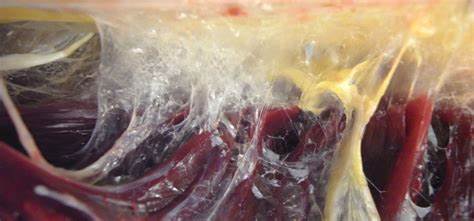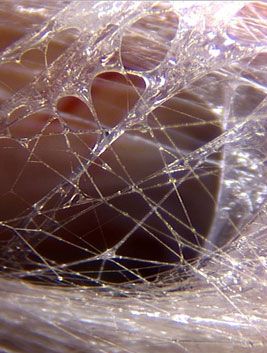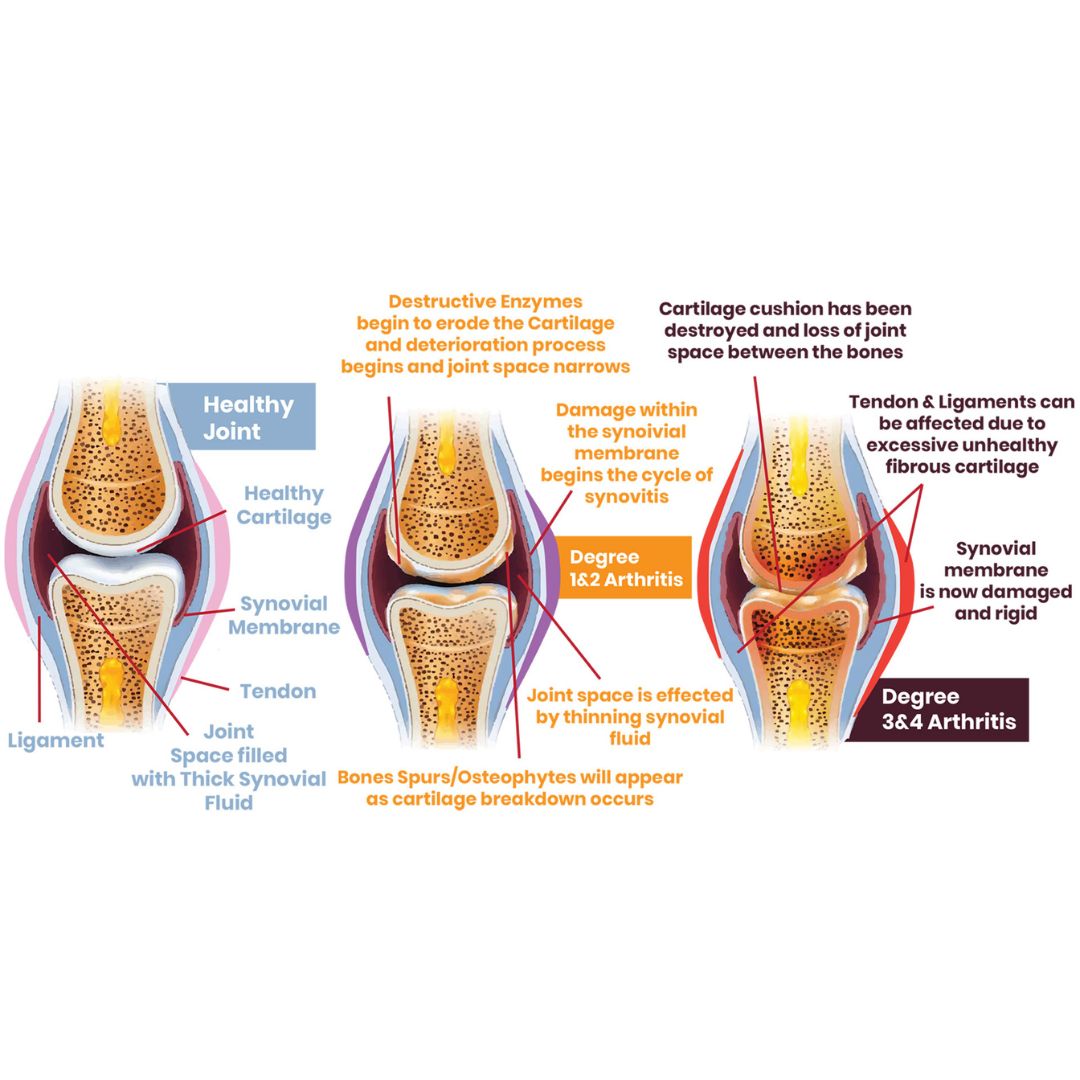Descubriendo la fascia como tejido conectivo
Una red dinámica
En el corazón de la anatomía equina se encuentra la fascia, una red intrincada y dinámica de tejido conectivo. Imagínela como una red tridimensional entrelazada por todo el cuerpo, envolviendo músculos, órganos y estructuras esenciales. Al funcionar como el marco arquitectónico del cuerpo, la fascia no es simplemente una envoltura pasiva, sino un contribuyente dinámico a la biomecánica de los movimientos de un caballo. La piedra angular de la integridad estructural de la fascia es el colágeno, una proteína que sirve como columna vertebral arquitectónica de esta compleja matriz. Las fibras de colágeno forman un andamiaje resistente, que proporciona resistencia a la tensión, flexibilidad y elasticidad a la red fascial. Comprender el papel central del colágeno es fundamental para comprender el funcionamiento matizado de la fascia como tejido conectivo en los caballos.

La sinergia dinámica: fascia y colágeno en la fisiología equina
Participación activa en biomecánica
La fascia, un tejido conectivo denso que envuelve los músculos, los huesos y los órganos, influye significativamente en la biomecánica del caballo. Desempeña un papel fundamental en la coordinación de la función muscular al crear una red que permite un movimiento eficiente durante actividades como caminar, correr y saltar. Al rodear las articulaciones, la fascia contribuye a la estabilidad y la movilidad, garantizando una alineación adecuada y reduciendo el riesgo de lesiones. Además, actúa como un amortiguador, distribuyendo fuerzas e impactos por todo el cuerpo, minimizando así la posibilidad de lesiones relacionadas con el estrés repetitivo o los impactos repentinos. La fascia desempeña un papel crucial en el mantenimiento de la postura y el equilibrio al influir en la alineación de la columna y apoyar la capacidad del caballo para moverse de manera equilibrada y coordinada. Como sistema continuo e interconectado, los cambios o restricciones en un área de la red fascial pueden afectar a otras regiones. Además, el sistema fascial responde al ejercicio y al entrenamiento, y la actividad física adecuada promueve la elasticidad y la flexibilidad.
La contribución multifacética del colágeno
Dentro de la intrincada estructura fascial, el colágeno desempeña un papel multifacético. Su resistencia a la tracción proporciona un soporte crucial a los músculos y las articulaciones, asegurando la estabilidad durante diversos movimientos. Al mismo tiempo, las propiedades elásticas del colágeno permiten el estiramiento y la recuperación necesarios para un movimiento fluido y eficiente. La relación simbiótica entre el colágeno y otros componentes de la fascia subraya su papel indispensable en la fisiología equina.
Comprender el impacto: la influencia de la fascia en la salud equina
Movilidad, flexibilidad y más
El impacto de la fascia en la salud equina es de largo alcance, en particular en lo que respecta a la movilidad y la flexibilidad. La salud óptima de la fascia garantiza que los caballos puedan ejecutar un rango completo de movimiento sin rigidez ni molestias. La presencia de colágeno es fundamental, ya que contribuye a la flexibilidad y la resistencia de la matriz fascial, mejorando así la movilidad general. Al ahondar en el ámbito del tratamiento del dolor, la relación entre el colágeno y la fascia se vuelve primordial. Una fascia dañada o tensa puede provocar molestias, lo que influye en el comportamiento del caballo y puede impedir el progreso del entrenamiento. Explorar técnicas especializadas de liberación de la fascia, haciendo hincapié en la preservación de la integridad del colágeno, se vuelve esencial para promover la comodidad y la satisfacción del caballo.

Ejemplos de fascia

Fomentar una salud fascial óptima: estrategias y consideraciones
Nutrición rica en colágeno
Complementar a su caballo con OptiWize Collagen Plus le proporcionará al cuerpo de su caballo lo que necesita para apoyar la producción de colágeno y contribuir a la robustez y resistencia de los tejidos fasciales.El colágeno, una proteína fundamental en el tejido fascial, refuerza la integridad estructural, reduciendo el riesgo de lesiones causadas por el estrés. Además, desempeña un papel fundamental en la mejora de la salud de las articulaciones, contribuyendo a una mejor movilidad y comodidad, especialmente beneficioso para los caballos que realizan actividades extenuantes. La suplementación también favorece la función de los tendones y ligamentos, ayudando a prevenir lesiones y a una recuperación más rápida. La participación del colágeno en la cicatrización de heridas se extiende a varios tejidos conectivos, fomentando una recuperación eficaz de las lesiones.
Nutrición rica en colágeno
La realización de rutinas de ejercicio regulares y variadas por parte de los caballos es fundamental para mantener la salud de la fascia. El movimiento no solo promueve la flexibilidad de la fascia, sino que también garantiza la flexibilidad de las fibras de colágeno dentro del tejido conectivo, lo que evita las adherencias y la rigidez.
Orientación e intervenciones profesionales
La colaboración con profesionales de la salud equina añade una capa de precisión al cuidado de la fascia. Los veterinarios y terapeutas certificados pueden ofrecer asesoramiento personalizado, identificando posibles problemas y recomendando intervenciones específicas. Estas pueden incluir terapias de masajes especializados, ejercicios de estiramiento y suplementos para mejorar el colágeno adaptados a las necesidades únicas del caballo.
En conclusión
En conclusión, nuestra exploración en profundidad de la fascia en los caballos revela un ámbito en el que el colágeno actúa como eje de este tejido conectivo vital. Al comprender cómo el colágeno contribuye a la funcionalidad dinámica de la fascia, los jinetes pueden mejorar su enfoque del cuidado equino, asegurando no solo el bienestar físico sino también un rendimiento óptimo.



